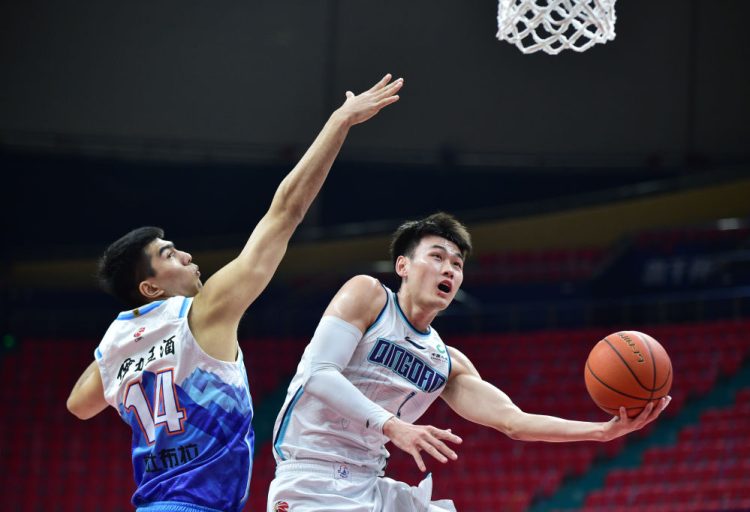As international basketball continues to evolve, a new and controversial trend is emerging — the naturalization of foreign players. This movement, primarily seen in countries with burgeoning basketball programs but limited homegrown talent, has sparked debates about the future of competitive fairness in global tournaments, particularly in the upcoming 2025 FIBA Basketball World Cup in Doha. The country at the heart of this debate is the Philippines, where a bold plan to include six foreign-born players in their national team has raised concerns regarding the integrity and competitive balance of the competition.
This “6 Foreign Player Plan” promises to be a game-changer, bringing in players with the necessary skill and experience to boost the Philippines’ chances of a deep run in the World Cup. However, the plan also stirs up questions about the line between fair play and exploitation of naturalization loopholes. Could this influx of foreign talent undermine the spirit of fair competition and result in a team built more on international recruitment than national pride?
1. The Philippines’ Basketball Ambitions and the “6 Foreign Player Plan”
Basketball holds a special place in the hearts of the Filipino people. With a long history of passionate basketball fans and a deep basketball culture, the Philippines has consistently been a top contender in Asia, but has struggled to reach the top tier in the global arena. The Philippine national team, known as the Gilas Pilipinas, has experienced ups and downs, with close calls at FIBA Asia Championships but never quite achieving the global success that countries like the United States, Spain, and France have enjoyed.
In response to this challenge, the Philippines has turned to a bold strategy: the naturalization of foreign-born players to strengthen their roster. The “6 Foreign Player Plan” is part of this effort, where the Philippines intends to recruit up to six international players — athletes with professional experience, particularly those playing in strong leagues like the NBA, EuroLeague, or Asian leagues. These players would be granted Filipino citizenship to compete under the country’s flag, adding experience and firepower to the team.
This is not the first time the Philippines has used naturalization to improve its national team. In recent years, the country has brought in high-profile naturalized players such as Andray Blatche (a former NBA player) and Jordan Clarkson (of the Utah Jazz), who have been crucial to the team’s success in international competitions. With the success of these naturalized players, the push for further integration of foreign talent has gained traction.
2. The Controversy of Naturalization in International Basketball
The naturalization of foreign players in basketball has been a controversial topic for years. On one hand, countries like the Philippines, who have a passionate basketball following but limited access to high-level talent domestically, argue that naturalizing foreign players is a way to level the playing field and boost competitiveness on the world stage. On the other hand, critics argue that excessive reliance on foreign-born players can undermine the spirit of national representation and compromise the fairness of the competition.
In basketball, where team chemistry, national pride, and cultural identity play an important role in a team’s performance, the naturalization trend raises valid concerns:
- Is it fair for a team to compete with players who have no real connection to the country they represent?
- Does this trend create an uneven playing field, particularly in tournaments like the FIBA World Cup, where the success of a nation’s basketball program is often based on homegrown talent?
- Will the “naturalized players” trend cause a backlash from countries that rely solely on their local talent pools, undermining their chances of success?
The Philippines’ plan to field six foreign-born players at the World Cup has magnified these concerns. Some critics argue that the Philippines, with its growing wealth of basketball talent and fervent fanbase, should focus on developing homegrown talent rather than relying heavily on naturalization. They fear that such a strategy would turn the national team into a “mash-up” of mercenaries rather than a squad that represents the heart and soul of the country.
3. The Competitive Impact: Is the Philippines Overstepping?
The question that looms large ahead of the 2025 FIBA Basketball World Cup in Doha is whether the Philippines’ “6 Foreign Player Plan” will cross the line of competitive fairness. While other countries have also naturalized foreign players — such as Qatar and Bahrain, who have similarly fielded naturalized players in international competitions — the Philippine case stands out for its scale.
The potential presence of six naturalized players in the starting lineup could fundamentally alter the dynamics of the tournament. The sheer quality of players like Jordan Clarkson (an NBA starter) and others could give the Philippines an unfair advantage in comparison to other nations that are fielding entirely domestic rosters. The depth of the talent pool in the Philippines could also shift, resulting in less emphasis on developing young Filipino players and a greater focus on securing high-caliber imports. This could, in turn, hinder the long-term growth of domestic basketball programs.
While some critics view the plan as a strategic and pragmatic move, others argue that it poses significant challenges to the integrity of the tournament. The competitive balance of the FIBA World Cup could be compromised if teams increasingly turn to naturalization as a shortcut to success. This could set a precedent for other nations to adopt similar strategies, turning international basketball into a contest of imported talent rather than a celebration of homegrown skills and national pride.
4. FIBA’s Response: Should There Be Stricter Regulations?
As naturalization becomes a more widespread phenomenon in international basketball, FIBA, the sport’s governing body, may need to take a hard look at its current regulations. The question of how many naturalized players should be allowed to participate in national teams has yet to be definitively addressed. Currently, FIBA rules allow each country to naturalize one or two foreign players for international competitions, with some leeway for countries with significant expatriate populations. However, the Philippines’ plan to field six foreign-born players at once challenges the limits of this flexibility.
FIBA could respond to this growing trend in several ways:
- Limiting Naturalized Players: FIBA could impose stricter limits on the number of naturalized players allowed on each national team. This could ensure that teams rely primarily on homegrown talent rather than excessive reliance on imports.
- Establishing Eligibility Criteria: FIBA could introduce stricter eligibility criteria for naturalized players, requiring a deeper connection to the country they represent — perhaps mandating a certain number of years living or training in the country before a player can represent them internationally.
- Creating a More Defined Eligibility Process: FIBA could make the naturalization process more transparent and consistent, ensuring that it is not exploited by wealthy nations to assemble super-teams at the expense of fairness.

5. The Filipino Basketball Culture: A Double-Edged Sword
While the naturalization wave has the potential to disrupt the competitive balance in international basketball, it also highlights the unique position of Filipino basketball culture in the global landscape. Basketball is more than just a sport in the Philippines — it is a way of life. The Filipinos’ love for the game is unparalleled, and the national team’s performance on the world stage is a source of national pride.
The Gilas Pilipinas has long been a source of inspiration, rallying an entire nation behind them in international tournaments. However, the issue of naturalization complicates this narrative. By relying heavily on foreign-born players, the national team risks diluting its identity, shifting from a team of passionate Filipinos to a team of hired guns. This change may alienate fans who value the authenticity of the sport and feel that naturalized players detract from the national spirit of competition.
At the same time, the naturalization of foreign players provides a pathway for the Philippines to compete against stronger teams, and it may be a necessary step for a country with limited domestic talent to compete at the highest levels. But finding the right balance between international talent and local representation will be crucial for maintaining the integrity of the sport in the Philippines.
6. Conclusion: A Tipping Point for International Basketball?
As the 2025 FIBA Basketball World Cup approaches, the Philippines’ ambitious “6 Foreign Player Plan” is set to be one of the most talked-about topics in international basketball. While the plan is seen by many as a strategic move to boost the country’s competitiveness, it also raises serious questions about the competitive fairness of the tournament and the future of national team identity in global basketball.
The rise of naturalized players has sparked a global debate about the fine line between ensuring fair play and competitive advantage. If the Philippines moves forward with this plan, it could set a precedent that challenges the integrity of international basketball competitions. FIBA and other governing bodies will need to consider whether they want to continue allowing naturalization on such a scale or if they should enact stricter regulations to ensure that international tournaments remain true to the principles of national representation and competitive balance.






























Discussion about this post